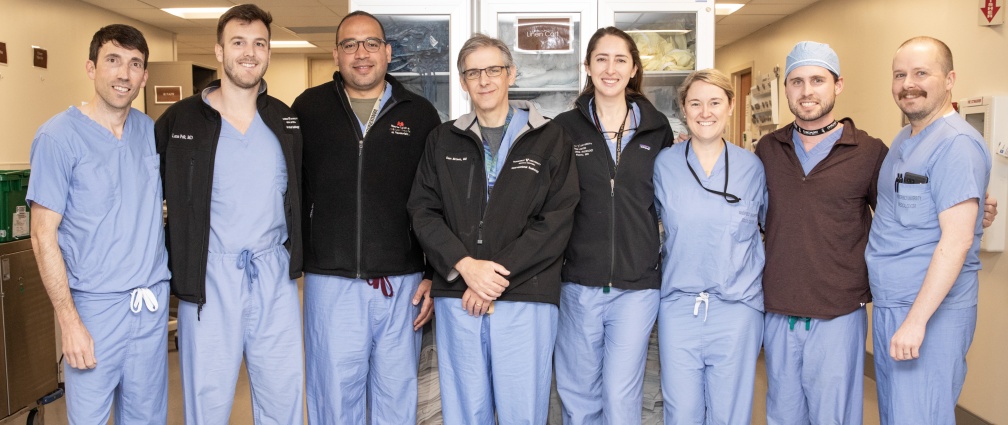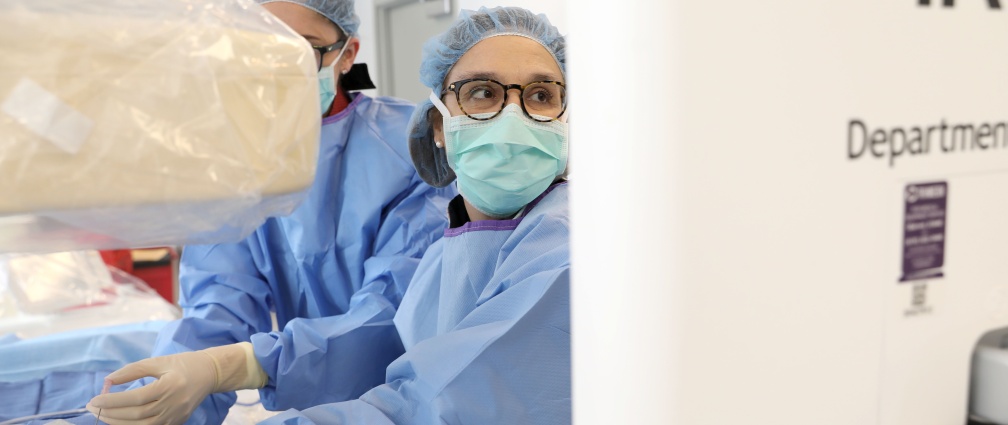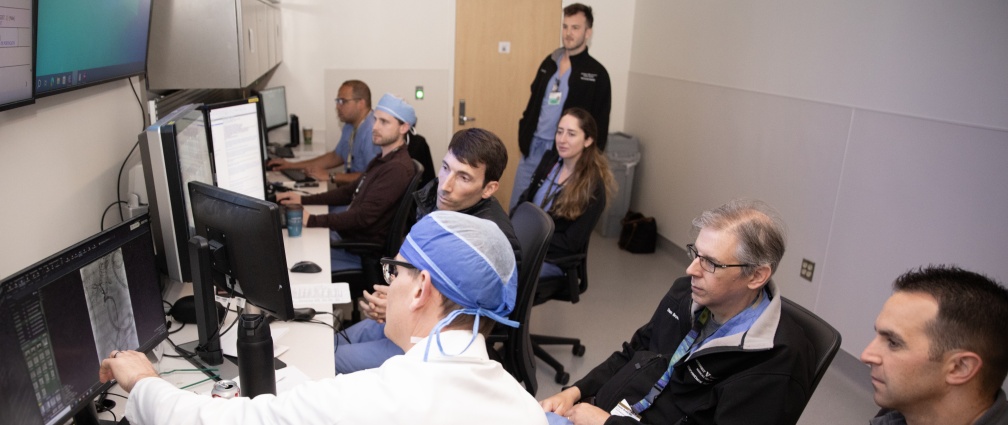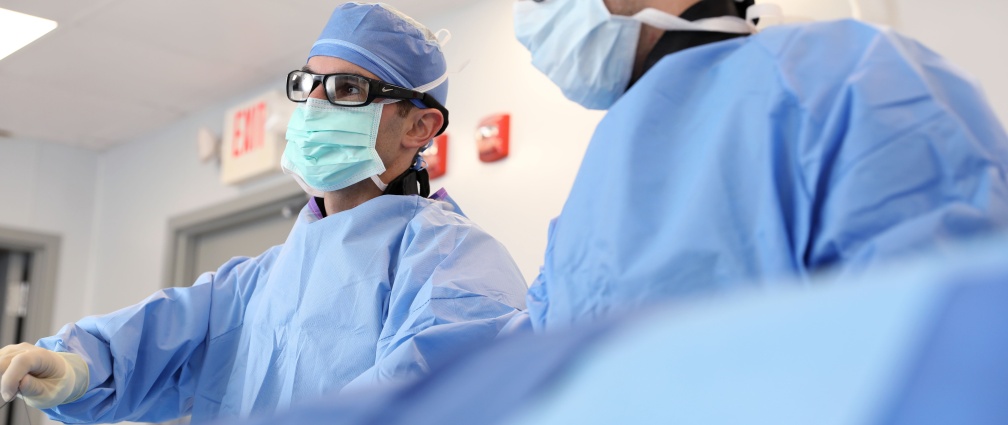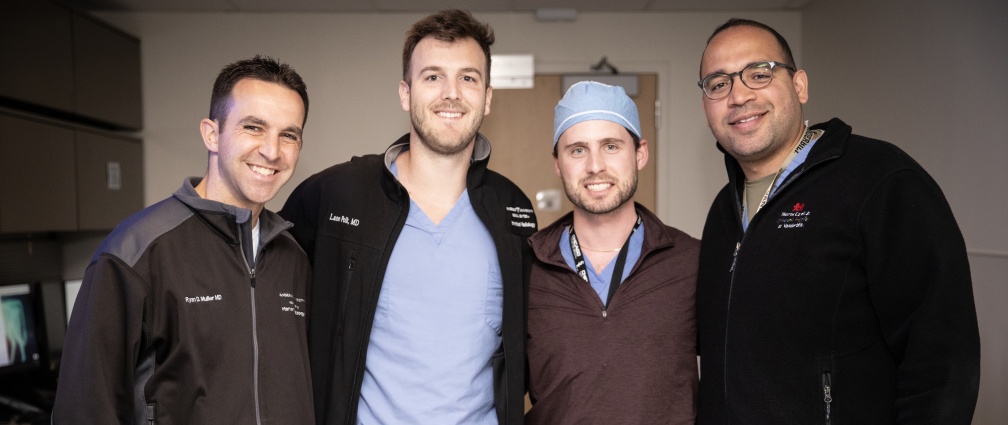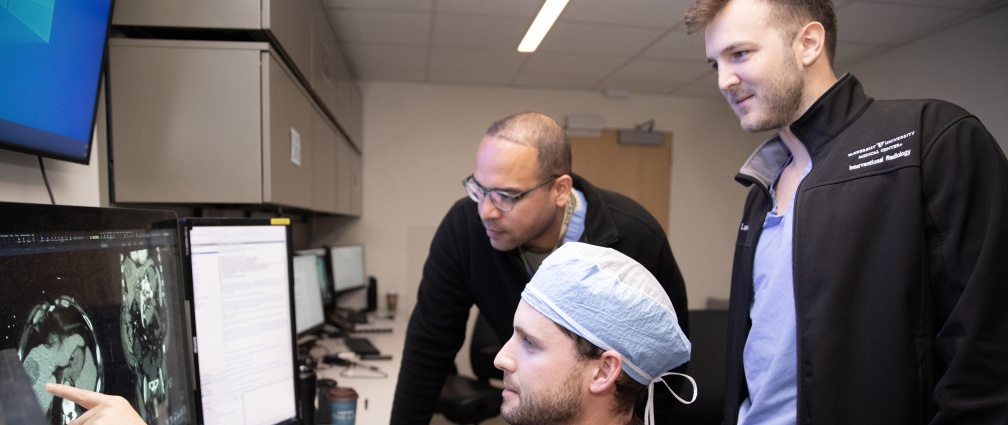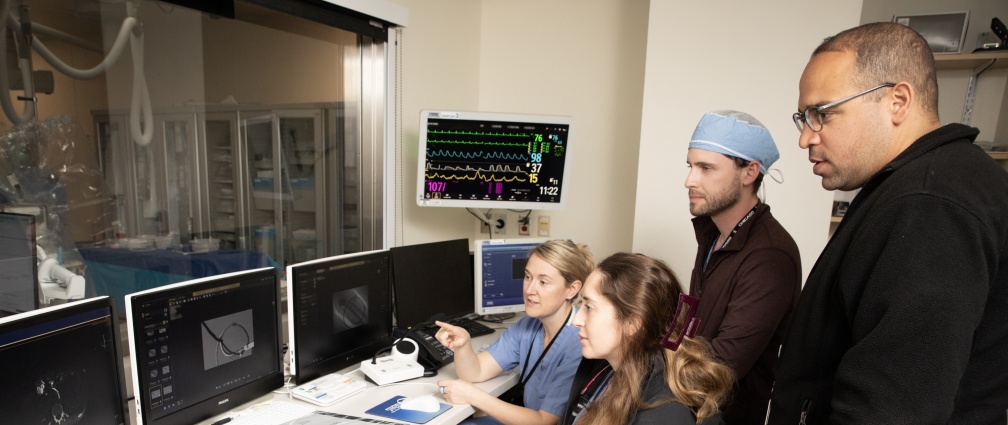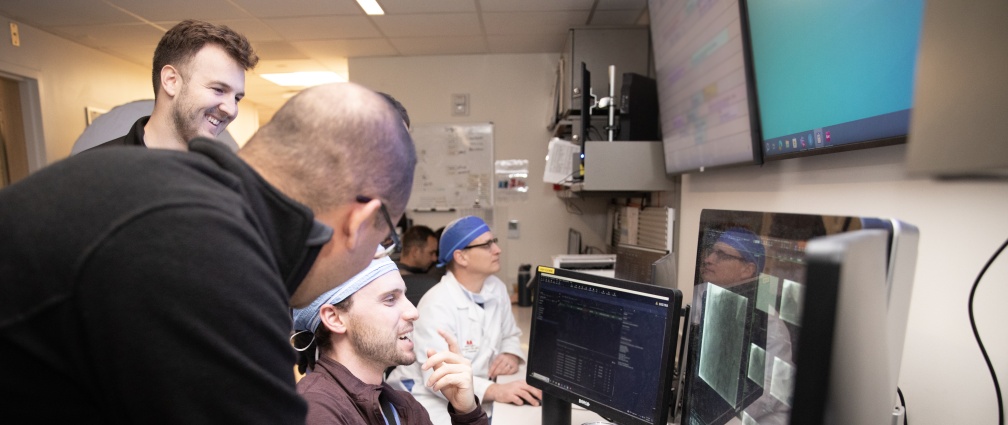Interventional Radiology
Interventional Radiology (IR) is a subspecialty of radiology that utilizes advanced imaging techniques to guide minimally invasive procedures that are performed to diagnose and treat a broad range of medical conditions. IR has something to offer in the management of patients of all ages with all types of diseases involving almost every organ system, and we are often able to provide an alternative to surgery or a targeted therapy for treatment when other options are not available. Because IR procedures are minimally invasive, they are frequently associated with shorter recovery times and lower complication rates than surgical procedures may be.
PROCEDURES
IR performs approximately 7,500 procedures at Vanderbilt University Hospital (VUH) and about 2,000 procedures each year at the Monroe Carrel Junior Children’s Hospital at Vanderbilt. We also see approximately 2,500 patients in the IR clinic at VUH and 750 patients in the Vanderbilt Vein Clinic at One Hundred Oaks annually.
Procedures that are commonly performed in IR are:
Management of vascular access, including port placement, dialysis catheter placement, and maintenance of dialysis grafts and fistulas
Biopsies of bone, liver, kidney, lung, and thyroid lesions, lymph nodes, and other soft tissue tumors
Embolization of active bleeding due to trauma, tumors, and gastrointestinal disease, as well as post-partum hemorrhage
Drainage of abscess collections Placement and management of G tubes and GJ tubes
Placement of drainage catheters in the urinary or biliary tract for relief of obstruction
Placement and removal of IVC filters
Paracentesis and thoracentesis
Other procedures performed in IR are:
Interventional oncology procedures, including radioembolization and transarterial chemoembolization
Complex venous reconstruction for treatment of central or pelvic venous occlusion
Transjugular intrahepatic portosystemic shunt (TIPS) placement and complex portal venous reconstruction for management of portal venous hypertension
Microwave ablation, radiofrequency ablation, and cryoablation for liver, renal, bone, and soft tissue tumors Arterial and venous embolization for treatment of congenital vascular malformations
Prostate artery embolization for treatment of benign prostatic hypertrophy
Uterine artery embolization for treatment of uterine fibroids
Cholangioscopy for management of biliary stones
Kyphoplasty
Ovarian vein embolization for treatment of pelvic venous insufficiency
Testicular vein embolization for treatment of scrotal varicosities
Endovenous laser ablation, phlebectomy, and sclerotherapy for treatment of lower extremity venous insufficiency
Lymphangiography and thoracic duct embolization for treatment of lymphatic disorders
One area to highlight within IR is Interventional Oncology (IO). Our IO team is a further specialized group that performs tumor-directed therapies, most often in patients with either primary or metastatic liver disease. These therapies include the delivery of radioactive beads (Y90) or chemotherapeutic agents directly into the blood supply to a tumor that cannot be treated with either surgery or systemic therapy. IO procedures extend life for these patients, who often have no other options, and sometimes allow them to become candidates for transplantation. Approximately 500 of the procedures performed each year in IR are IO procedures.
STAFF AND FACILITIES
The IR section at Vanderbilt University Medical Center consists of 12 faculty, 15 residents, 8 APPs, 28 nurses, and 26 technologists and is constantly growing. IR has recently undergone a significant renovation and expansion of our facilities at VUH, and we now have 2 new state-of-the-art angiography suites with plans for replacement of 2 more soon, as well as a new 18-bed patient holding and recovery area. We are also excited to be part of the ambulatory surgery center expansion at One Hundred Oaks and look forward to having three new procedure rooms there soon.
Interventional Radiology Section Chief
-
LeAnn Stokes, M.D.
ProfessorRadiology & Radiological SciencesSection ChiefInterventional RadiologyVice Chair of Quality and SafetyRadiology & Radiological Sciences
Interventional Radiology Faculty
-
Christopher M. Baron, M.D.
Associate ProfessorClinical Radiology & Radiological Sciences -
Anthony Joseph Borgmann, M.D.
Associate Professor of ClinicalRadiology & Radiological SciencesDirectorInterventional Oncology -
Coleman Breland, M.D.
Assistant ProfessorRadiology & Radiological Sciences -
Daniel B. Brown, M.D., FSIR
Carol D. and Henry P. Pendergrass Professor and ChairDepartment of Radiology & Radiological SciencesVice Chair of Innovation & Clinical ResearchDepartment of Radiology & Radiological SciencesProfessorBiomedical Engineering -
Meaghan Dendy Case, M.D., M.A.
Assistant ProfessorRadiology & Radiological Sciences -
Kathleen Donais, M.S.N.
AssistantClinical Radiology & Radiological Sciences -
Reza A Imani-Shikhabadi, M.D.
Assistant ProfessorClinical Radiology & Radiological SciencesProgram DirectorIntegrated Interventional Radiology Residency -
Andrew Marsala, M.D.
Assistant ProfessorRadiology & Radiological Sciences -
Steven G. Meranze, M.D.
Associate DeanFaculty AffairsProfessorRadiology & Radiological SciencesProfessorSurgeryProfessorUrologyVice Chair of Faculty AffairsRadiology & Radiological Sciences -
Ryan David Muller, M.D.
Medical DirectorInterventional RadiologyDirector of GU InterventionsRadiology & Radiological SciencesAssociate ProfessorRadiology & Radiological SciencesAssociate ProfessorClinical Urology -
JM Ponting, M.D.
Assistant ProfessorRadiology & Radiological Sciences -
Raj Shah, M.D.
Assistant ProfessorRadiology & Radiological Sciences -
Nicholas Voutsinas, M.D., RPVI
Assistant ProfessorRadiology & Radiological SciencesAssociate Program DirectorIntegrated Interventional Radiology Residency -
William Reino Winter, M.D.
Assistant ProfessorRadiology & Radiological Sciences
Interventional Radiology Advanced Practice Providers
-
Nicole Daley Mullen, DNP, APRN, FNP-BC
Advanced Practice Providers Team LeaderCT/US Procedures Nurse PractitionerInterventional Radiology -
Michelle Kearney, DNP
Nurse PractitionerInterventional Radiology/Interventional Oncology -
Heather Luckenbaugh, MSN, APRN, FNP-BC
Nurse PractitionerInterventional Radiology/Interventional Oncology -
Kyra Nelson
Physician AssistantInterventional Radiology -
-
